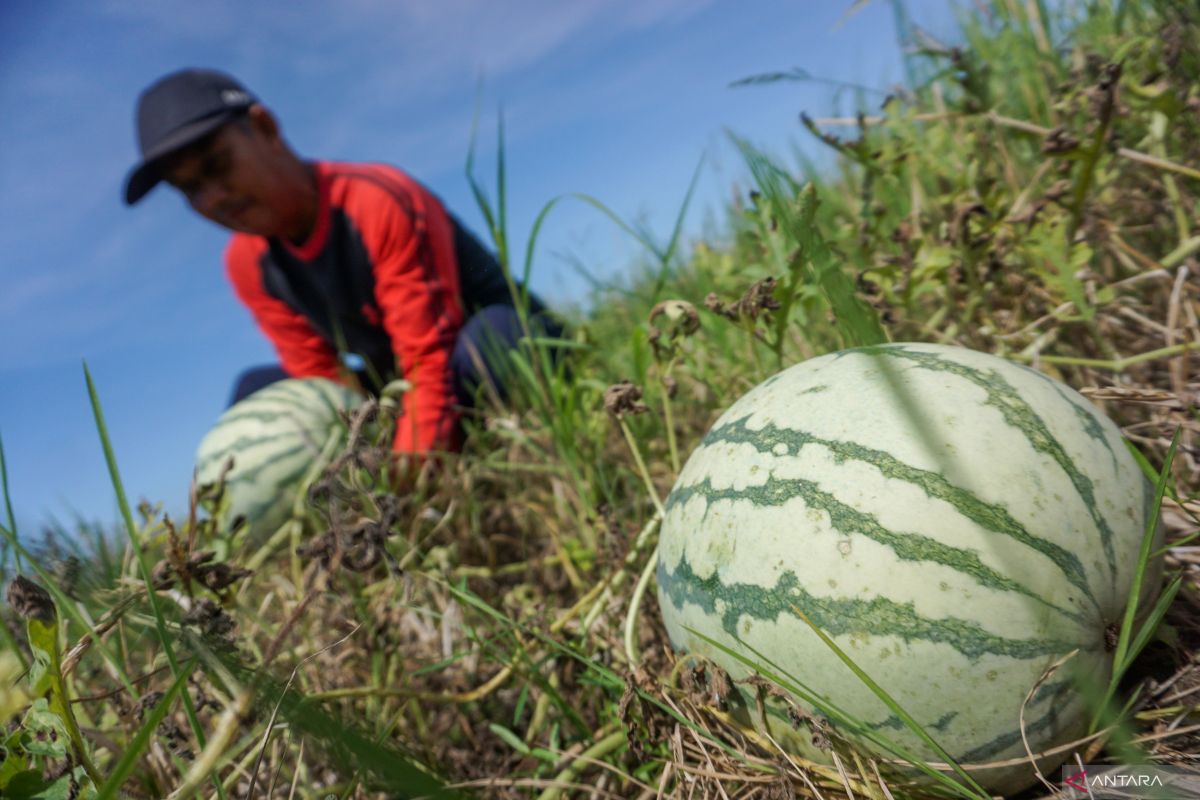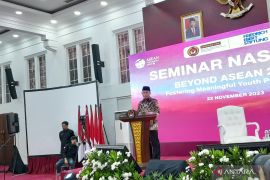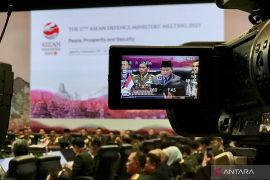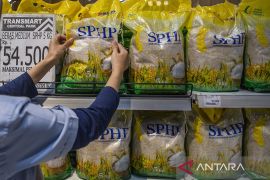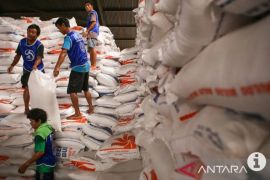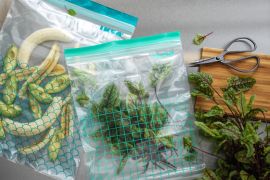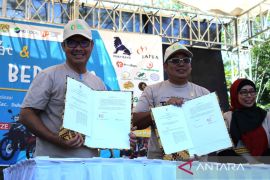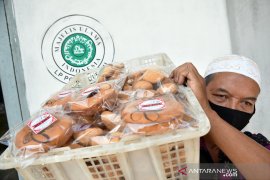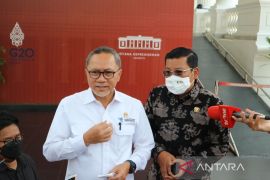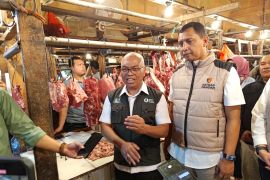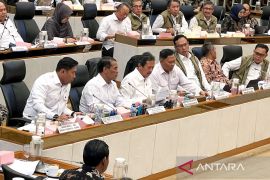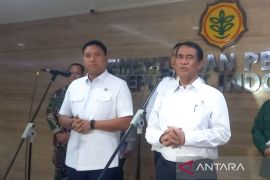A total of 345 million people in 82 countries were affected by global food insecurity in 2022, higher compared to 135 million people in 53 countries in 2019.
The international financial institution also noted that the severe drought caused by the El Nino phenomenon and climate change has increased the threat of crop failure and hunger for people living in sub-Saharan Africa, South Asia, and Southeast Asian countries.
Approximately 80 percent of the global population facing the highest risk of food insecurity resides in those countries.
So far this year, the average food inflation in Southeast Asian countries has reached 15 percent, according to information provided on the website of the Foreign Affairs Ministry of Indonesia.
The World Bank has predicted that by 2030, 43 million people in Africa might end up living below the poverty line if the issue is not properly addressed.
Beyond African and Asian regions, climate change has also affected countries in North America and Europe, where 32 percent of agricultural land has faced the threat of flash droughts every year for the past few years, according to the World Economic Forum.
The potential for drought may increase to 49 percent for North American countries and 53 percent for European countries by the end of this century.
For this reason, tackling food insecurity in times of crises has become one of the agendas of Indonesia's chairmanship of the Association of Southeast Asian Nations (ASEAN) this year, themed "ASEAN Matters: Epicenter of Growth."
Through its chairmanship, Indonesia is seeking more inclusive and integrated cooperation in energy security, financial stability, health, and food security.
As defined at the 1996 World Food Summit, food security is a condition when all people have physical, social, and economic access to adequate, safe, and nutritious food, which can help them live an active and healthy life.
Singapore was the ASEAN country with the highest rank on the 2022 Global Food Security Index, placing 28th with an overall score of 73.1.
The index assessed the affordability, availability, quality and safety, as well as sustainability and adaptation of the food sector in 113 countries.
Among other Southeast Asian countries, Malaysia ranked 41st with a score of 69.9, Vietnam 46th (67.9), Indonesia 63rd (60.2), Thailand 64th (60.1), the Philippines 67th (59.3), Cambodia 78th (55.7), and Laos 81st (53.1).
Food Security Efforts in ASEAN
Current global conditions, which have the potential to trigger a future food crisis, have led ASEAN countries to once again highlight the issue during Indonesia’s chairmanship of the grouping.
The global food crisis of 2007–2008 encouraged ASEAN member countries to develop the ASEAN Integrated Food Security (AISF) Framework and Strategic Plan of Action on Food Security to ensure food security in the region.
The regional organization then implemented the 2009–2020 AISF Framework as well as the 2009–2013 and 2015–2020 Strategic Plan of Action on Food Security to achieve long-term food security and increase the welfare of farmers in Southeast Asian countries.
This year, ASEAN countries discussed the development of the ASEAN Leaders' Declaration on Strengthening Food Security and Nutrition in Times of Crises at the 43rd ASEAN Food Security Reserve Board (AFSRB) meeting.
According to the declaration, Southeast Asian countries will develop a cooperation network among various agriculture, trade, finance, and transportation-related institutions in the region to strengthen food security.
The collaboration will also aim to bolster the regional supply chain and promote sustainable farming.
ASEAN leaders are expected to agree on the declaration, which is also one of the priority economic deliverables (PEDs) of Indonesia’s chairmanship, at the 43rd ASEAN Summit planned to be held in Jakarta in September 2023.
The 43rd AFSRB meeting was held in Bogor district, West Java province, on June 7-8 and was attended by representatives from all ASEAN countries, the ASEAN Secretariat, and the AFSRB Secretariat.
The officials of the ASEAN Plus Three Emergency Rice Reserve (APTERR) Secretariat, as well as the ASEAN Food Security Information System (AFSIS) Secretariat, were also present at the meeting.
APTERR is a cooperation platform for ASEAN member countries, China, Japan, and South Korea to strengthen rice production and respond to emergency rice supply shortages in any member country.
Meanwhile, AFSIS is a collaborative project among the ministries responsible for the agriculture and forestry sectors in ASEAN countries, China, Japan, and South Korea to collect, analyze, and disseminate information regarding food security in the region.
Quoting President Joko Widodo, head of Indonesia's National Food Agency (NFA), Arief Prasetyo Adi emphasized that the world is not safe from the threat of a food crisis.
"We must be prepared to tackle the issue," he remarked.
Hence, Southeast Asian countries, as one of the regions most affected by food insecurity, must strive to anticipate the potential global food crisis as well as various other risks threatening the global food chain, he added.
"I believe that one of the attempts to solve the food security issue is bolstering the commitment of ASEAN member countries by establishing the ASEAN Leaders' Declaration on food security," Adi continued.
Therefore, ensuring the stability, availability, accessibility, and proper utilization of food reserves in the region is important, he stressed.
The AFSRB meeting also discussed recent food issues in each member country so that the problems could be resolved through intergovernmental collaboration.
Adi said that each country would convey which food commodities are needed the most by them, and the participants of the meeting would discuss how much food resources should be reserved.
Regarding domestic food security, the NFA, as a governmental institution assigned to maintain food issues in Indonesia, is also making efforts to establish a national food reserve and distribution mechanism to mitigate the threat of a global food crisis, he informed.
He said that to realize this effort, his agency is cooperating with several ministries, institutions, state-owned enterprises (SOEs), private sector players, academics, social communities, agricultural associations, and international stakeholders.
It is hoped that the efforts of Southeast Asian countries can truly help realize a strong food security and reserve mechanism to tackle the threat of a global food crisis.
Related news: ASEAN discusses food crisis threats
Related news: Indonesia stresses food security synergy in ASEAN commitment
Related news: Indonesia discusses regional rice reserve strengthening in APTERR
Editor: Anton Santoso
Copyright © ANTARA 2023
